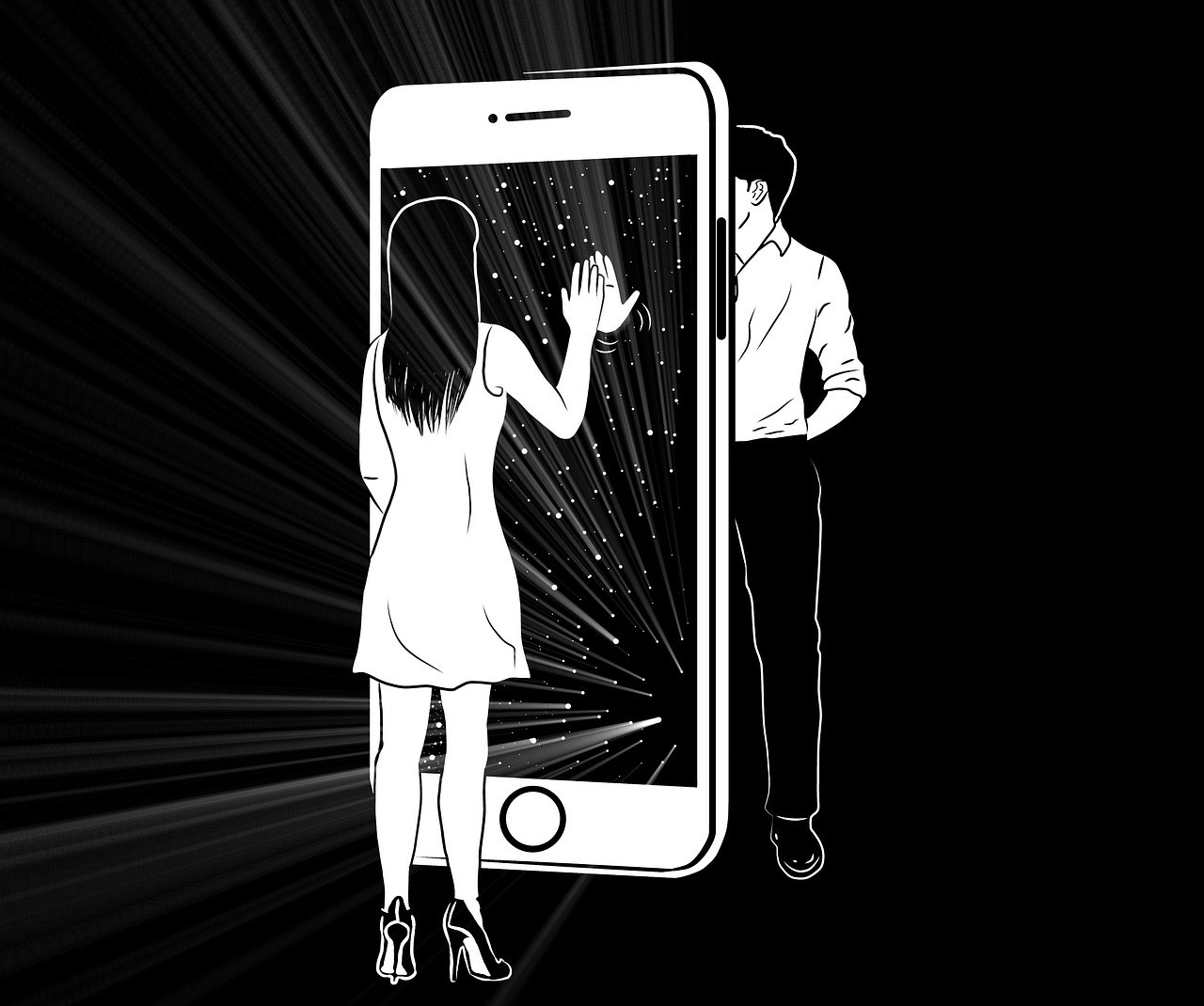Breakups don’t only end date nights and shared routines – they rearrange your daily life in dozens of tiny ways, especially online. One scroll through social media can stir up a storm of nostalgia, anger, or second-guessing. That is often the moment the question appears: should I block my ex or keep the door cracked open? The urge to block may feel dramatic, yet protecting your peace is not drama; it is maintenance. If I decide to block my ex today, I’m not writing a lifelong contract – I’m choosing a boundary that helps me heal now.
Before you flip that switch, it helps to name what you want. Are you trying to stop doom-scrolling their highlights? Do you need fewer temptations at 2 a.m.? Are you afraid you’ll send a message you’ll regret? When I wonder whether to block my ex, I’m really weighing clarity versus chaos – will this boundary reduce intrusive thoughts, or will it push me into sneakier habits like checking from a friend’s phone? Getting honest about your motives makes the decision cleaner and kinder to yourself.
What you’re really asking when you consider blocking
On the surface, the question sounds technical – tap a button and silence the feed. Underneath, it’s about emotional bandwidth. Seeing an ex’s weekend posts can pull you back into the story you’re trying to end. A casual “how are you?” text can reignite old patterns. When I say “should I block my ex,” I’m asking whether constant access is helping me move forward or keeping me stuck in yesterday. If access equals agitation, distance often equals relief.

Blocking isn’t the only lever. Unfriending, unfollowing, or muting can quietly remove the triggers without broadcasting a statement. If I don’t want to block my ex outright, hiding their posts can achieve much of the same calm. The difference is intensity: blocking is a firm boundary; muting is a soft curtain. Choose the option that genuinely lowers your emotional noise – not the one that looks most mature to other people.
Will a block actually help you?
Sometimes yes – sometimes not enough. A block can stop the immediate pings and prevent impulsive replies. But a block can be undone, and a curious mind finds detours. If the underlying habit is obsession, I might block my ex today and still spend an hour searching tomorrow. The real question is: will a barrier support your self-control, or will it become a dare you keep testing?
If you suspect you’ll simply replace one compulsion with another, start with smaller moves: remove shortcuts to their profile, mute their stories, archive old photos. If those changes lower the temperature, great. If they don’t, the clarity of saying “I’ll block my ex” may be the cleaner route – less gray, fewer loopholes, more mental space.

Quiet paths that avoid unnecessary drama
You might worry that a block announces something loud. But there are ways to protect yourself without turning it into a spectacle. Unfollowing and hiding posts keep their updates out of your view while avoiding the sharp signal of a block. This is useful if you share social circles or work in the same space. If subtlety matters more than symbolism, these options give you relief with less ripple.
Still, if a soft boundary keeps getting crossed – late-night messages, cryptic posts aimed at you, “accidental” likes – it’s reasonable to say “I’ll block my ex” and end the ambiguity. Boundaries are not punishments; they’re fences that protect a garden you plan to replant.
Clear signs a stronger boundary is the healthy choice
Use the guide below as a mirror. You don’t have to tick them all, and you can come back to this list as feelings shift. If several points resonate, it may be time to say, without apology, “I will block my ex.”

- You receive frequent check-ins that keep you emotionally hooked – the “just thinking of you” text, the meme only you’d get, the heart on a story. If those nudges reopen wounds or restart hope you’re trying to shut down, decide to block my ex and reclaim the silence you need to recover.
- They push for “one more conversation” about closure. If the talk will repeat the same arguments, choosing distance is self-care. You can wish someone well and still block my ex to prevent a spiral you’ve already lived through.
- Your healing has stalled. You find yourself rerunning highlights, rehearsing speeches, or collecting screenshots. A firm boundary can create the clean break rumination won’t let you have. When I notice this loop, I know it’s time to block my ex so my brain can cool down.
- Missing them feels like a riptide. Longing is normal – letting it steer your phone is optional. If seeing their name reignites fantasies of reunion you know aren’t wise, it’s kinder to yourself to block my ex and remove the spark.
- Social posts are a gut punch. A single photo ruins your afternoon, or a caption triggers a spiral. You don’t have to keep touching the stove to prove you’re strong. Many people quietly choose to block my ex for this reason alone – protection beats performative toughness.
- Unanswered questions keep you engaged. You want to know what they meant, how they remember things, whether they’re mad. Curiosity masquerades as closure. If answers won’t change the outcome, block my ex and let uncertainty fade with time.
- They can’t let go and keep hovering. Vague sad posts, “accidental” messages, or friendly pings that feel loaded are signs a boundary is being tested. You’re not required to be their transitional support. It’s okay to block my ex and allow both of you to detach.
- Anger fuels a hate-follow. You keep doom-scrolling and sending screenshots to friends. That ritual feels powerful in the moment and hollow later. If spite is driving your clicks, it may be healthier to block my ex and stop rehearsing resentment.
- Jealousy flares when you see them moving on. Comparing timelines is corrosive – and unrealistic. If updates make you judge your own pace, eliminate the comparison point. Many people find the pressure lifts the minute they block my ex and stop monitoring milestones.
- You’re tempted to perform for them. Posting to provoke a reaction – the “look how fine I am” highlight reel – keeps you tethered. If you catch yourself curating for an audience of one, that’s a nudge to block my ex and break the feedback loop.
- Spy work has become a hobby. You scan photo backgrounds, track new follows, and assemble theories. That time belongs to you, not to a mystery. If you can’t stop investigating, block my ex so the case finally goes cold.
- You don’t like them as a person, beyond chemistry. If trust and care were missing, there’s little reason to preserve digital access. Give yourself permission to block my ex and remove an influence you wouldn’t choose as a friend.
- You want to be cordial someday – just not yet. Polite coexisting is possible after real distance. Until the feelings settle, temporary distance helps. Many people mute first, then later decide to block my ex for a season, returning when neutrality is real.
- They betrayed you. Any ping drags you back to the worst moment. You don’t owe your peace to someone who broke your trust. The quickest route out of the echo is to block my ex and stop the reminders from landing.
- You’re stuck in an on-off loop. The pattern is predictable: you stop talking, you see a post, someone sends a message, the door reopens, the same problems return. Interrupting the loop often requires a different move – decide now to block my ex and change the script.
- You were the one who strayed and feel guilty. Guilt can trick you into over-engagement, hoping to demonstrate care. Yet visibility may keep them from healing. It can be kinder to both of you to block my ex while the dust settles.
- You feel responsible for their emotions. Compassion is human; caretaking is not required. If they lean on you for comfort that keeps you entangled, it’s reasonable to protect your mental health – say “I’ll block my ex,” and let other supports take your place.
When lighter touches are enough
Not every situation calls for the strongest boundary. If you co-parent, share finances, or collaborate at work, the goal is structure, not severing. In those cases, keep communication limited to the necessary channels and mute the rest. If I don’t want to fully block my ex because logistics matter, I still remove casual access – no late-night DMs, no personal updates, no open-ended small talk. That distinction keeps life functional without re-entangling feelings.
Even without shared obligations, a lighter approach can be smart if your emotions are mostly settled and it truly doesn’t bother you to see their posts. If you can scroll by without a spike in heart rate, consider unfollowing and moving on. But be honest: if you find yourself rationalizing while still spiraling, it’s a sign the soft boundaries aren’t doing their job – and it may be time to block my ex for a while.
What about the fear of looking immature?
Here’s a reframe: maturity isn’t about tolerating distress to prove a point – it’s about choosing what nourishes you. The idea that you must demonstrate “grown-up” resilience by staying connected is a cultural script, not a rule. If tapping “block” helps you sleep, eat, and show up for your life, that is adulthood in action. You can be compassionate and still block my ex; you can wish them well and still protect your bandwidth.
Worried about how it will be perceived? People who care about you will understand your priority is healing. People who don’t, won’t – and that’s outside your control. Boundaries are about behavior, not declarations. You don’t need to send an announcement. Quietly choose the settings that serve you and keep living.
Guilt, closure, and the myth of the perfect goodbye
Closure is often less a conversation than a practice. No single exchange can compress shared time into a neat ending. If the prospect of one last talk makes your stomach drop, that’s data. You can say, “I’m not available for this,” and then block my ex to prevent back-and-forth you’re not ready for. If, later, you genuinely feel steady and want to revisit civility, unblocking remains an option – boundaries can evolve.
Feeling guilty because they’re hurting? That empathy speaks well of you. But you’re no longer their person. Holding space for your own recovery isn’t cruel; it’s necessary. You can encourage them to lean on friends, family, or a counselor, while you step back. When guilt keeps you tethered, repeating “I’m allowed to block my ex” is a truth worth practicing until your nervous system believes it.
There’s no timetable – only fit
Some people block immediately; others wait until a random Tuesday months later when a post finally pushes them over the edge. Both approaches are valid. Healing isn’t linear, and the best moment to act is the one that aligns with your well-being. You might browse old photos without a pang – or you might archive them because they sting. You might leave the door open – or you might block my ex now and revisit the choice when the temperature drops. None of this is permanent unless you want it to be.
Think of boundaries like privacy settings on your heart. You can tighten them during a storm and loosen them in calmer weather. If you change your mind, change your settings. What matters is whether your present choice creates more steadiness than strain.
Practical ways to make the decision simpler
- Do a quick body check after exposure. How do you feel five minutes after seeing their update – grounded or spinning? If it’s the latter, block my ex and give your nervous system a rest.
- Audit your habits. If you keep opening their profile “just to see,” your behavior is telling you something. A guardrail helps; that’s what a block is for.
- Reduce reminders. Remove photo widgets, archive chat threads, and turn off “memories” for a while. If the noise persists, block my ex to finish the job.
- Pick one rule you’ll keep. For instance: no messaging at night. If that promise is hard to keep, use a block as the tool that enforces it.
A boundary that serves your healing
You don’t need anyone’s permission to prioritize peace. If interacting – or merely having the option to interact – keeps you raw, go ahead and block my ex. If less extreme measures genuinely work, use them. If circumstances require contact, keep it narrow and neutral. There is no medal for endurance, only the quiet reward of a nervous system that isn’t on alert every time your phone lights up.
When doubt creeps in, remember the simplest test: does access soothe or destabilize you? If it destabilizes you, choose the intervention that helps – perhaps to block my ex for a season – and let the quiet do its steady work. Healing loves silence, clarity, and boundaries you can trust. Protect those, and the next chapter will have room to begin.